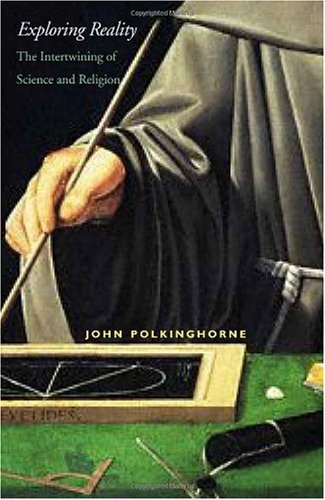
Exploring Reality
The Intertwining of Science and Religion
کتاب های مرتبط
- اطلاعات
- نقد و بررسی
- دیدگاه کاربران
نقد و بررسی

Starred review from September 26, 2005
According to the physicist-priest Polkinghorne, "If the physicists seem to achieve their ends more successfully than the theologians, that is simply a reflection of how much easier science is than theology." Without abandoning his general standpoint as both a scientist and a theologian, Polkinghorne's essays pursue a wider set of interests, acknowledging terrain where theology becomes difficult and uncertain work. Reflections on issues of space-time, quantum mechanics and chaos theory—familiar from Polkinghorne's previous books—are joined by essays on human nature, the problem of evil, the historical Jesus and the relationship between Christianity and other faiths. Polkinghorne's basic approach remains consistent: he is a friend of science, but a foe of scientific reductionism, arguing that "nothing can tell us requires us to deny our directly experienced human capacity" to act responsibly and seek meaning in the universe. Surveying human aptitudes for self-consciousness, language, rationality, creativity, moral awareness and the "slantedness" of human life that theologians call sin, Polkinghorne concludes, "how strange it is that many biologists... claim not to be able so see anything really distinctive about Homo sapiens
." Balancing intellectual modesty with openness about his own Christian faith, Polkinghorne's reflections will engage both thoughtful believers and inquirers into issues of faith and reason.

November 1, 2005
In the latest of his ongoing reflections on the connections between faith and science, Polkinghorne ponders the limits of an empirical approach to reality, persuasively arguing that human experience comes fully into focus only in religious belief. Thus, readers contemplate distinctively human attributes--language, self-consciousness, morality, spirituality--that resist neo-Darwinian explanations yet harmonize with scriptural doctrines about the divine image impressed upon our species. Probing further, Polkinghorne illuminates the human need for hope that transcends the grim cosmic predictions of astrophysics. He finds that hope in the resurrection of Jesus, but he concedes that neither science nor religion can yet resolve the doctrinal disagreements separating Christianity from other world faiths. But the shared metaphysics that already leads Moslems, Jews, and Christians toward similar scientific perspectives emboldens him to believe that patient interfaith dialogue will in time unite now-divided religionists as they confront the challenges of twenty-first-century bioethics. A book to stimulate the thinking of skeptics and believers alike. (Reprinted with permission of Booklist, copyright 2005, American Library Association.)

























دیدگاه کاربران